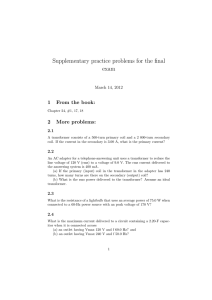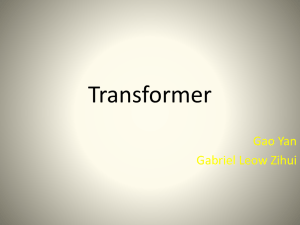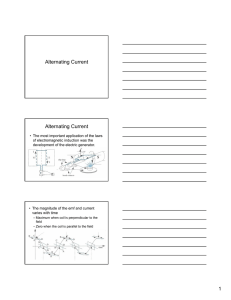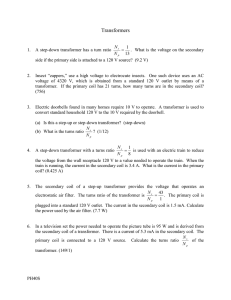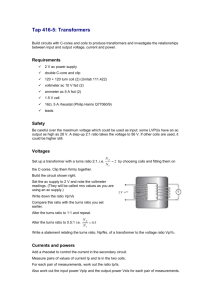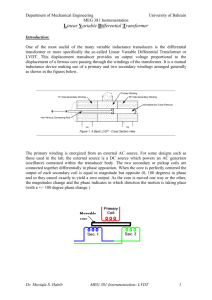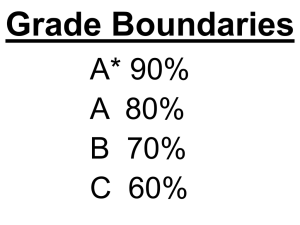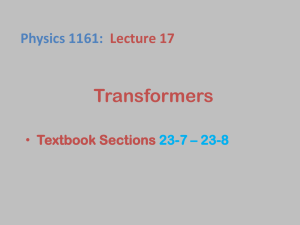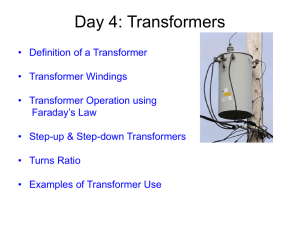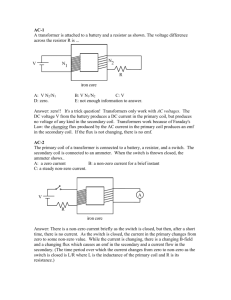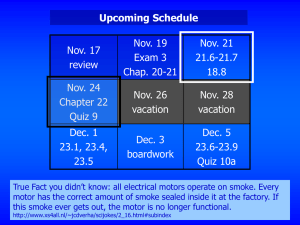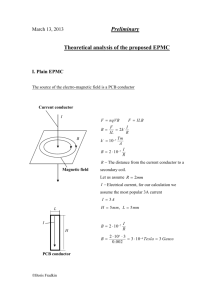HERE
advertisement
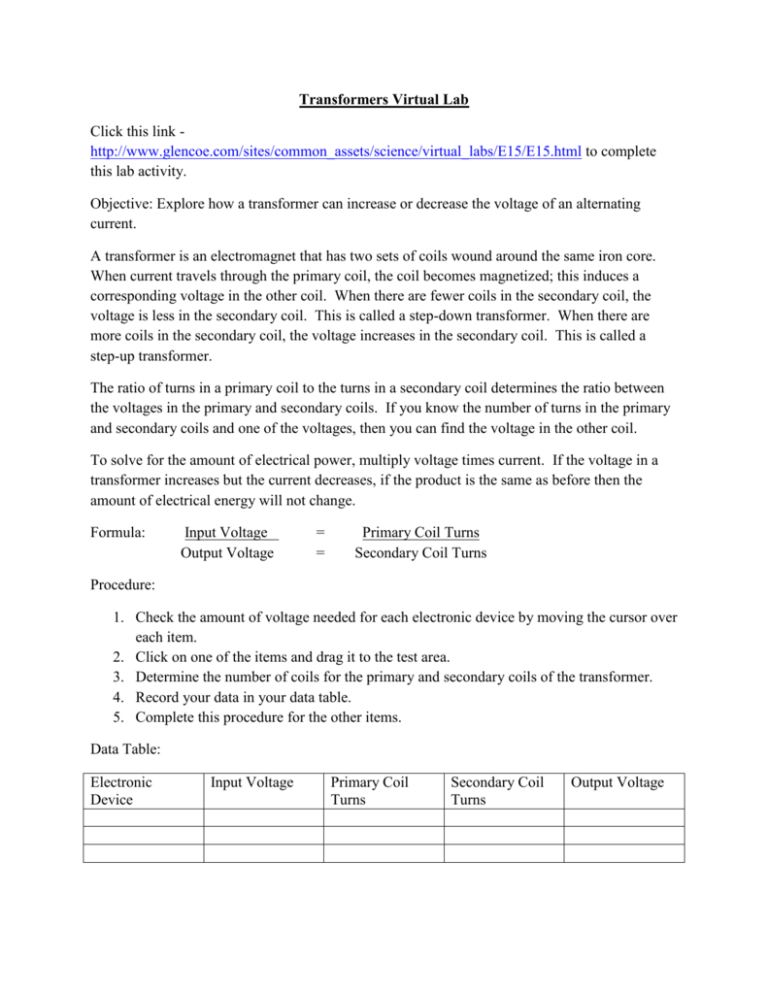
Transformers Virtual Lab Click this link http://www.glencoe.com/sites/common_assets/science/virtual_labs/E15/E15.html to complete this lab activity. Objective: Explore how a transformer can increase or decrease the voltage of an alternating current. A transformer is an electromagnet that has two sets of coils wound around the same iron core. When current travels through the primary coil, the coil becomes magnetized; this induces a corresponding voltage in the other coil. When there are fewer coils in the secondary coil, the voltage is less in the secondary coil. This is called a step-down transformer. When there are more coils in the secondary coil, the voltage increases in the secondary coil. This is called a step-up transformer. The ratio of turns in a primary coil to the turns in a secondary coil determines the ratio between the voltages in the primary and secondary coils. If you know the number of turns in the primary and secondary coils and one of the voltages, then you can find the voltage in the other coil. To solve for the amount of electrical power, multiply voltage times current. If the voltage in a transformer increases but the current decreases, if the product is the same as before then the amount of electrical energy will not change. Formula: Input Voltage Output Voltage = = Primary Coil Turns Secondary Coil Turns Procedure: 1. Check the amount of voltage needed for each electronic device by moving the cursor over each item. 2. Click on one of the items and drag it to the test area. 3. Determine the number of coils for the primary and secondary coils of the transformer. 4. Record your data in your data table. 5. Complete this procedure for the other items. Data Table: Electronic Device Input Voltage Primary Coil Turns Secondary Coil Turns Output Voltage Conclusion Questions: 1. What is the purpose of a step-up transformer? 2. What is the purpose of a step-down transformer? 3. How can you determine the amount of voltage in one of the coils of a transformer? Summarize what you have learned about the use of transformers and any relationships you observed in your data.
